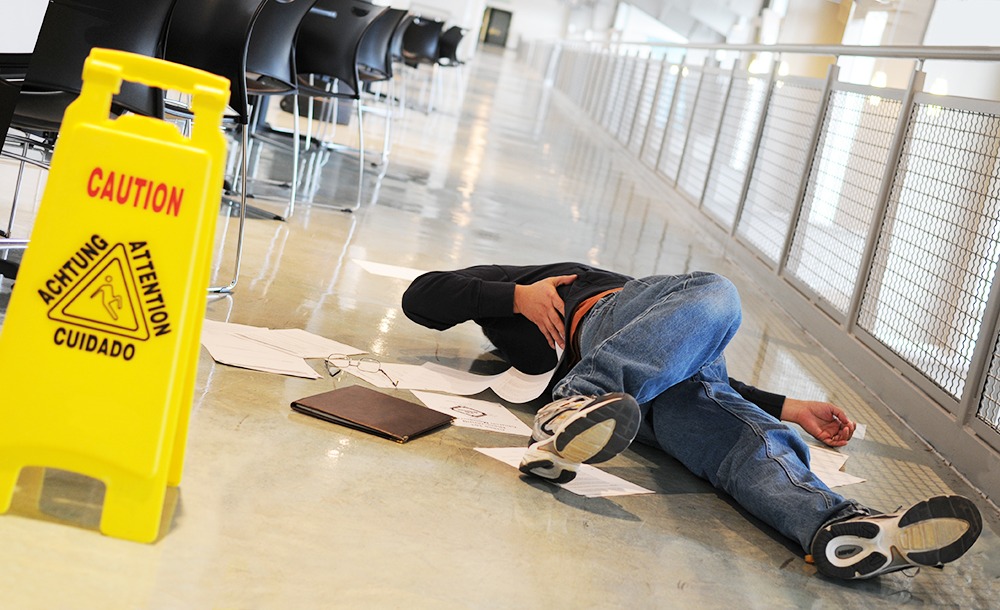Storms Don’t Excuse Negligence: Florida’s Take on Rainy Day Falls
Share:
Florida may be famous for its sunshine, but it’s also notorious for sudden downpours, afternoon thunderstorms, and unpredictable tropical weather. These rain events don’t just ruin your day, they can create slippery, hazardous conditions on sidewalks, parking lots, and inside businesses. A quick trip to the store can turn into an ER visit if property owners don’t take proper precautions.
Slip and fall accidents caused by rain or puddles are common, but the big question is: when is a property owner legally responsible? Let’s break down how Florida courts handle weather-related accidents, what duties property owners must uphold, and how victims can pursue justice.
The Challenge of Weather-Related Slip and Falls
Rainwater may be natural, but the hazards it creates are predictable. Businesses and landlords know that slippery conditions arise whenever it rains, especially in high-traffic areas like entrances and walkways. Florida law requires property owners to anticipate these dangers and respond reasonably.
- Tracked-in water near store entrances.
- Outdoor steps and ramps becoming slick from rainfall.
- Parking lots or sidewalks with poor drainage creating puddles.
Statistic: The CDC estimates that slip and falls send over 1 million people to emergency rooms annually, many caused by wet surfaces.
Florida’s Approach to Weather-Related Liability
Florida law doesn’t expect property owners to stop the rain—but it does require them to minimize foreseeable risks. Under premises liability law, property owners can be liable if they knew—or should have known—about a dangerous condition and failed to address it.
Florida Statute §768.0755 requires plaintiffs to prove that a business had actual or constructive knowledge of the hazard. That means:
- The hazard existed long enough that staff should have discovered it.
- The condition occurred regularly and was therefore foreseeable.
Pro Tip: Document recurring problem areas, like a puddle that always forms in the same spot after rain. Courts often treat repeated issues as constructive knowledge.
Common Property Owner Responsibilities
Property owners can’t be expected to keep every inch dry during a storm, but they are expected to take reasonable, proactive steps. Common safety measures include:
- Slip-resistant mats at entrances.
- Caution signs during wet conditions.
- Routine inspections and mopping.
- Proper drainage maintenance.
- Non-slip materials on outdoor walkways and stairs.
Statistic: The National Floor Safety Institute reports that over half of slip and fall accidents are preventable with basic safety precautions.
Examples of Weather-Related Slip and Fall Claims in Florida
Weather-related slip and fall accidents happen in everyday situations across Florida, from Miami to Jacksonville to right here in Naples.
- Retail entrances: Shoppers track in rainwater, and no mats or signs are provided.
- Outdoor restaurant steps: Rain makes tiled stairs slick, and no railing is available.
- Poorly drained parking lots: Standing water becomes a slipping hazard for customers.
Did You Know? Falls are the second leading cause of accidental injury deaths worldwide, according to the World Health Organization.
When Florida Property Owners Might Not Be Liable
Not every slip during wet weather results in liability. Florida law balances the duty of owners with the responsibility of visitors to use caution. Owners may not be liable when:
- The hazard was open and obvious (like a large puddle during active rain).
- Reasonable safety measures (mats, signs, mopping) were already in place.
- The injured person acted recklessly, such as running through puddles.
Pro Tip: Even if your case seems uncertain, consult an attorney. Florida courts review the entire set of circumstances before deciding liability.
Proving Liability in Florida Slip and Fall Cases
To recover compensation, victims must prove negligence by showing:
- A hazardous condition existed.
- The property owner knew or should have known about it.
- The owner failed to act reasonably.
- The hazard directly caused the injury.
Strong evidence includes photos, witness testimony, incident reports, and medical records.
Did You Know? Claims with photographic evidence are nearly twice as likely to succeed as those without.
Potential Compensation
Slip and fall accidents can cause more than bruises. Victims often face surgeries, rehabilitation, lost wages, and lasting pain. In Florida, compensation can include:
- Medical expenses and rehabilitation costs.
- Lost wages and future earning capacity.
- Pain, suffering, and emotional distress.
- Disability-related accommodations if needed.
Statistic: The National Safety Council estimates the average slip and fall injury costs over $30,000 in medical bills and lost wages.
Final Thoughts
Weather-related slip and falls in Florida may seem like accidents, but many are preventable. Property owners know that rain makes floors, stairs, and walkways slippery—and the law expects them to take reasonable steps to protect visitors. When they fail to act and someone gets hurt, they can be held accountable.
If you’ve been injured after a slip in the rain, don’t assume it was just bad luck. With the right legal support, you may be able to recover compensation for your medical bills, lost wages, and pain and suffering. Protecting your rights starts with understanding them.
Slipped After the Rain in Florida? Know Your Rights
At DuFault Law, we understand that weather-related slip and fall accidents in Florida aren’t always just “bad luck.” Property owners have a legal responsibility to keep their premises safe—even when the rain pours. If you’ve been injured on a slippery walkway, wet stairs, or a poorly maintained parking lot, you may be entitled to compensation for your medical bills, lost wages, and pain and suffering.
- Call us at (239) 422-6400
- Email us at contact@dufaultlaw.com
- Or Visit our Contact Page to schedule a consultation



Comments are closed